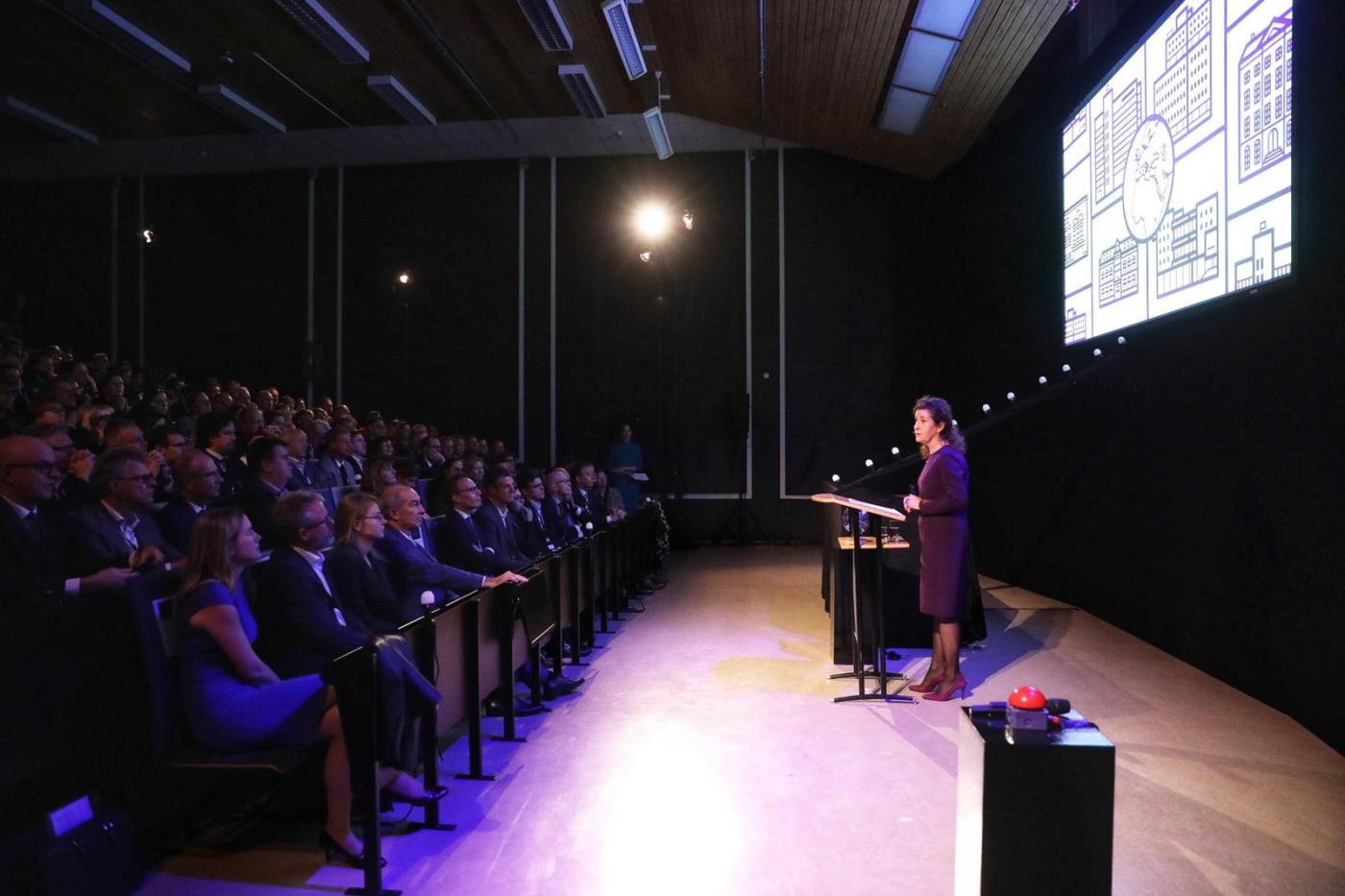Sympathetic responses to plans Van Engelshoven

The demonstrators of WOinActie called for the resignation of the minister in September. "But we also called on her to regain confidence," the action group tweets. "Let this be a first step."
The activists continue their struggle, but they are happy that Minister Van Engelshoven wants additional money for higher education and scientific research. She doesn't have it at the ready right now, but in time it will have to come, she said when presenting her agenda.
In a lecture hall of the Ruppert building in De Uithof, Van Engelshoven promised to do her best. She referred to the Lisbon standard of 2.5 percent, which must go to research and innovation. The Netherlands is not doing that yet. In an interview with NRC Handelsblad she stated that 1 billion euros must be added to meet that standard.
Mild
The Dutch Student Union (LSvb) sounds mild and critical at the same time as well. "The LSVb approves of the minister's emphasis on the accessibility of higher education, but emphasises that the current financing of education is not future-proof."
That is also how the Dutch National Student Association (‘Interstedelijke Studentenoverleg’) thinks. "The financing of higher education must be in order before investments are made in new plans." But those plans are actually not all that bad: "The minister's ambition to focus on the student rather than just looking at returns is a great development."
The universities and universities of applied sciences were closely involved in the creation of the plans, so they are very pleased with it. For example, they think it's great if fixed funding becomes more important, while student numbers becomes less important.
Less interest
Is nobody worried that students will have more difficult access to higher education, when universities and colleges will soon have less financial interest in numbers of students and numbers of diplomas?
"No, you are taking it too far now," says Pieter Duisenberg, chair of the Association of Universities in the Netherlands (VSNU). “We want to help students to develop and to end up in the right place. That is why we are happy to get to work with what we call the "alternating current": there are many students at the university that would fit better into higher vocational education programs and, conversely, there are also higher vocational students who are better off going to the university. We want to help them."
Wouldn’t that lead to fewer university students? "Maybe, but that is not a goal in itself," says Duisenberg. “Student numbers are not the strongest incentive for our employees anyway: that is the intrinsic motivation to provide the best education and do the best research. But the university is now bursting at the seams, while the universities of applied sciences are faced with an exodus. We must ensure that higher vocational education becomes a worthy choice again. In the past, many more VWO students opted for higher vocational education."
Who, what, where
Maurice Limmen, chair of the Netherlands Association of Universities of Applied Sciences, is not very concerned about the accessibility of higher education as of yet. You have to pay attention to the practical implementation of the plans, he says, but that will come in time. “This is a strategic agenda with goals for the longer term. But who, what, where, when and how must all become clear, as well as the financial consequences.” He would rather point towards the plans to guide students, together with the universities, to the right study programme.
But such a referral from students could hinder accessibility. The universities of applied sciences, for example, want to 'experiment' with the binding study advice. Do they also want to be able to send students away in later academic years? "That could be," acknowledges Limmen. “But first and foremost it’s about a good reference: we have made agreements with universities so that students end up in the right place with the least possible study delay. This may include some form of advice. The discussion differs per institution, and we want room for that."
Gone too far
Even the LSVb sees few objections in this regard. "The plans can certainly be a risk to accessibility," says chair Alex Tess Rutten, "But we do see that the emphasis on student numbers has really gone too far. Institutions in shrinking areas simply said aloud that they were aiming for internationalisation in order to get enough students. We hope that they will use education more consciously if the focus is less on the number of students.”
The reverse should of course not happen, she says. "Institutions should not be ‘punished’ as they grow. That would be a perverse incentive to keep students away. But with the proposals that exist now, I am not afraid of that."